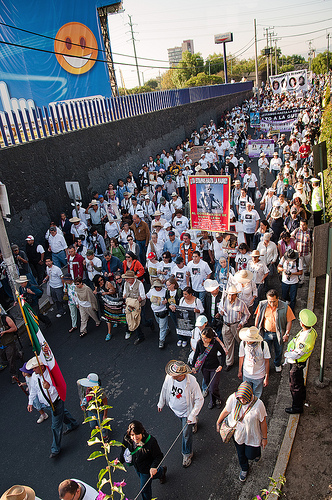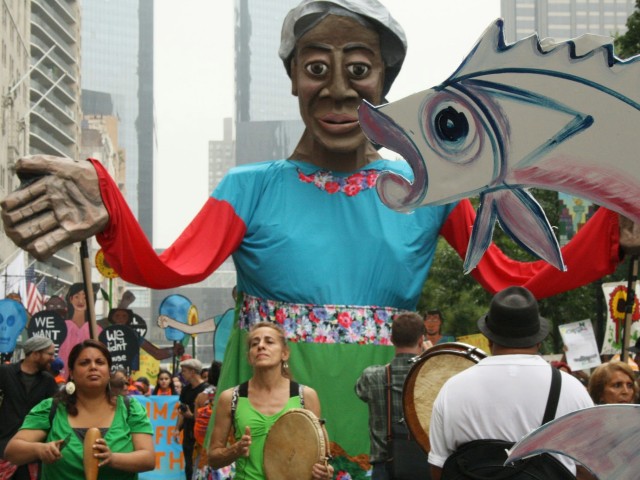
Dispatches, Mexico, North America, United States
E-2 Visas Provide Immigration Opportunities to Wealthy Mexicans Fleeing Violence
February 4, 2010 By Paola Reyes
SAN DIEGO — Last year Jorge, a Tijuana business owner who asked for anonymity for safety reasons, was driving home from work when several cars attempted to corner him.
When he realized that he was in the middle of a classic kidnap setup, he quickly accelerated and squeezed his Mini-Cooper in between two of the cars. As Jorge escaped, shots rang out behind him and he arrived to the police station with a bullet wound to his arm.
At the station, however, the police told Jorge that there was little that they could do for him.
“I was told that as soon as I left they could not guarantee that I would live.” They asked Jorge if he wanted to be taken to the airport or the U.S.-Mexican border.
Even though Jorge’s life was threatened in Mexico and he fears returning, he does not want to risk losing his tourist visa in the United States by applying for political asylum or refugee status.
Holders of tourist visas in the U.S. who apply for asylum risk losing those visas if their case is denied, according to San Diego immigration attorney Jacob Sapochnick. Applying for refugee or asylum status demonstrates the intention to stay permanently in the U.S. — a measure used by the State Department as the basis to deny a tourist visa, Sapochnick says.
Those who have “a well-founded fear of persecution based on at least one of five internationally recognized grounds: race, religion, nationality, membership in a particular social group, or political opinion” can apply for asylum and refugee status, according to a 2005 U.S. Justice Department report.
Yet it is often very difficult for asylum and refugee status to be granted. “Just witnessing a crime will not be sufficient. But, for example, former police high-ranking officers, government employees that were targeted could be potentially good candidates,” said Sapochnick.
One option available to wealthy Mexicans who flee the violence in their country is to apply for an E-2 or Investor’s Visa.
Since 1994, Mexico has been a so-called Treaty Country, making its residents eligible for E-2 visas. While the State Department only says that the investment needed must be “substantial,” Sapochnick says that a recommended investment varies between 50,000 to 100,000 dollars.
“[O]rdinary skilled and unskilled workers do not qualify” for E-2 visas, according to the State Department guidelines.
Such requirements disqualify many victims of violence in Mexico. In 2008, The Los Angeles Times reported that half of the victims of violence in Mexico were at or below the middle class level.
The select few who meet the investment requirements to qualify for the E-2 visa must then show that they are involved in their business. “The visa is not just about moving the funds,” Sapochnick said. “We need to show they set up the company, have a lease, start doing business.”
Not many of these visas are granted every year. In 2009, the U.S. granted Mexico only 2,499 treaty investor and treaty trader visas. This is a small number compared to the 7,598 student visas and 6,020 exchange visitor visas approved for Mexicans in 2009, according to State Department statistics.
Yet, the small number of E-2 recipients is partially due to the small number of applicants — 70 percent of all E-2 applicants in 2009 were granted visas, according to a 2009 State Department report.
As a point of reference, the ceiling for the number of refugees admitted by the U.S. in 2009 was 5,000 for all of Latin America and the Caribbean, according to a State Department’s Report to Congress.
Jorge now lives in San Diego, California in a house bought in the name of his girlfriend, a U.S. citizen. He hopes to soon have enough saved to apply for an E-2 visa. Meanwhile, Jorge must decide whether to risk his life by returning to Mexico or continuing to overstay his tourist visa in the U.S.
“Today, in spite of the tranquility of living in a country [the U.S.] with guaranteed security, I still have to risk my life when I go to Tijuana to work,” said Jorge.
Image: Paola Reyes
About Paola Reyes
Paola is a native of San Diego, California. She graduated summa cum laude from Wellesley College where she majored in history and psychology. As an undergraduate, Paola spent time in Latin America interning at El Financiero newspaper in Costa Rica and conducting thesis research in Argentina. Paola was a Henry MacCracken Fellow in New York University's Latin American and Caribbean Studies program, where she earned her M.A.






3 Comments
As a bi-cultural local Realtor with a commercial background, knowing the guidelines of the E 2 visa could be a market nitch. Mexico has a lot more to offer than just farm workers and cheap labor. Thanks for the information.
[…] • E-2 Visas Provide Immigration Opportunities to Wealthy Mexicans Fleeing Violence […]
[…] started me on my latest inquiry was this story in February from Latin America News Dispatch about how Mexicans with a little cash could get into […]
Comments are closed.